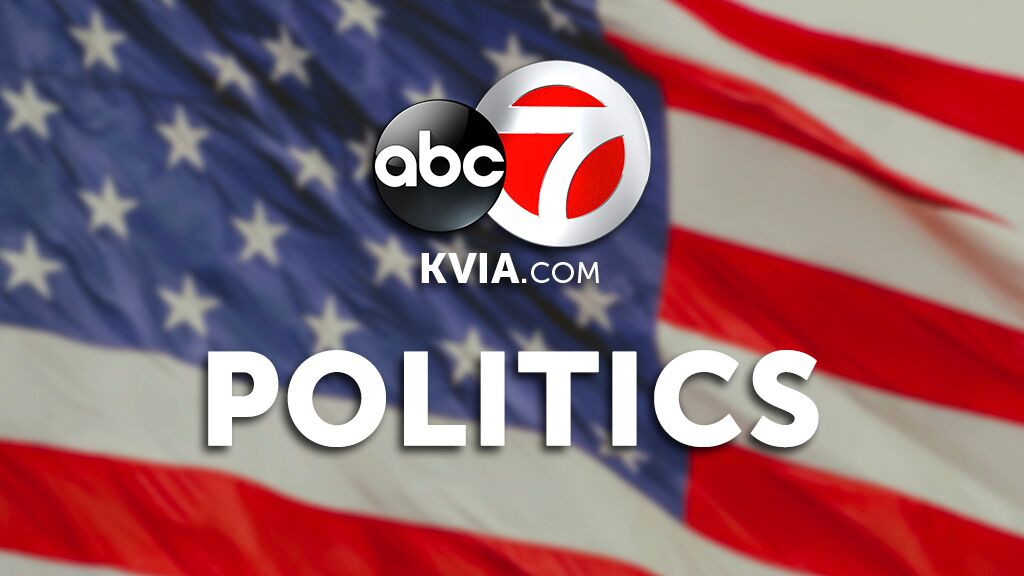Supreme Court grapples with First Amendment rights of schoolchildren in cheerleader case

The Supreme Court grappled on Wednesday with the First Amendment claims of a former high school cheerleader who argued that she could not be punished by her school for posting a profanity-laced caption on Snapchat when she was off school grounds.
The justices at times seemed sympathetic to the plight of the cheerleader in the case at hand, but searched for a workable standard — especially in the age of social media — that could shape the free speech rights of some 50 million public school children while also allow the schools to step in for speech that occurs off campus or online that could amount to a substantial disruption of the school’s mission or an example of bullying or a threat.
RELATED: Supreme Court poised for another historic spring
“F–k school f–k softball f–k cheer f–k everything” Brandi Levy, then 14, wrote in 2017. She was reacting to the fact that as a junior varsity cheerleader she had failed to get a spot on the varsity squad at Mahanoy Area High School in Mahanoy City, Pennsylvania.
When school officials learned of the outburst, Levy was suspended from the JV team for having violated school rules. But her lawyers sued, alleging the school had violated her freedom of speech. Levy is now 18 and a freshman at Bloomsburg University.
Several of the justices struggled with where they could draw the line if they allowed schools to discipline for speech directed at the school that occurs off-campus.
Justice Stephen Breyer acknowledged that Levy used “unattractive swear words,” but he questioned whether it caused a “material and substantial disruption” to the school.
“I don’t see much evidence it did,’ he said, and noted that teenagers, when talking to each other, often swear when they are off campus.
“I mean, my goodness, every school in the country would be doing nothing but punishing,” Breyer said.
Chief Justice John Roberts pressed a lawyer for the school about the extent of the school’s ability to discipline a student’s speech.
“You said that schools can’t regulate political or religious speech, but also that the school can regulate speech from off campus that is directed at the school,” he said. “So what do you do with political or religious speech that is directed at the school?”
The chief justice also referenced a student who might carry a sign off campus criticizing a school bond funding referendum. “How do you balance one situation against the other?” he asked.
Justice Clarence Thomas continued that line of questioning, extending it to students who might support controversial causes off campus. He wondered if students who were involved controversial issues could also be subject to discipline.
“Can’t there be comments about other hot-button issues, or about current controversies like protests or Black Lives Matter and Antifa or Proud Boys or something like?” Thomas asked.
Justice Sonia Sotomayor, meanwhile, pressed Levy’s attorney on how schools could defend against threats or bullying asking if the school would be “powerless.”
David Cole, an American Civil Liberties Union lawyer for Levy, said that his client was “merely expressing frustration with a four-letter word to her friends outside of school on a weekend.” She wasn’t sending a threat or an attempt to bully another student.
“The message may seem trivial, but for young people, the ability to voice their emotions to friends without fear of school censorship, maybe the most important freedom of all,” he said.
He emphasized that the school’s authority is limited to the “special characteristics of the school environment.”
Lisa Blatt, a lawyer for the Mahanoy Area School District, told the justices that the line should be drawn not based on where the speech occurred, but on whether it caused a substantial disruption.
“Off campus speech, particularly on social media can be disruptive,” she said because of the internet’s “ubiquity, instantaneous and mass dissemination.”
Levy won at lower courts
Levy’s case has drawn an array of support, including from Mary Beth and John Tinker, who won a landmark school speech case back in 1969 that allowed them to wear a black armband on campus to protest the Vietnam War.
The court held then that students do not shed “their constitutional rights to freedom of speech or expression at the schoolhouse gate.”
The Biden administration, meanwhile, sided with the school district, arguing that there is some speech that intentionally targets specific school functions that warrant discipline even if it occurs off campus.
Deputy Solicitor General Malcolm Stewart urged the justices to avoid a rule where schools would be “categorically exempted” from exerting discipline for off campus speech.
Levy won in the lower courts. The district court found that the school had not shown that she waived her speech rights as a condition of joining the cheerleading team. A federal appeals court affirmed, relying on the fact that the speech hadn’t occurred in the campus environment which would include school sponsored events and field trips. The court stressed that its holding didn’t impact a line of cases involving off campus student speech that threatens violence or harasses particular students or teachers. The court said that such speech would “no doubt raise different concerns and require consideration of other lines of First Amendment law.”
Back in 1969, the Supreme Court ruled in favor of the Tinkers. But the justices also took into consideration the special characteristics of a school environment and said that public school officials could regulate speech that would “materially and substantially interfere with the requirements of appropriate discipline in the operation of the school.”
But that decision concerned speech in the school environment. The justices will now have to decide whether the case should be expanded to apply to student speech that occurs off campus.
As a frustrated Justice Samuel Alito said at one point: “if schools are going to have any authority outside of school, there has to be a clear rule.”
